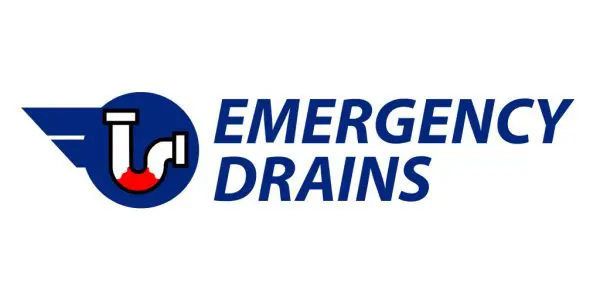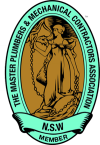Have you ever wondered what goes on behind the scenes to ensure your home’s plumbing runs smoothly? It’s not the most glamorous topic, but understanding how to prevent sewage backup can save you from messy and costly situations. Let’s dive into some practical tips that any Sydney homeowner can implement to keep their drains flowing and their homes dry.
What Are Signs of Sewage Backup?
Recognising the signs of sewage backup is crucial for early detection and prevention of potential issues. Here are common signs that may indicate sewage backup:
- Several clogged drains or toilets
- Unusually lush and green patches of grass.
- Water backing up in sinks, showers or toilets
- Water pooling in unexpected areas around your property
- Sewage-like smells in your yard, especially near sewer line access points
- A sudden rise or fall in the water level in the toilet bowl when you’re not using it
- Water or sewage backup in floor drains, laundry sinks, or basement bathrooms
- Unpleasant, sewage-like odours in or around your home, particularly near drains or in the basement
- If multiple drains in your home, including sinks, showers and toilets are draining slowly
- Unusual gurgling or bubbling noises coming from drains, toilets or other plumbing fixtures
If you observe any of these signs, it’s important to address the issue promptly. Ignoring sewage backup symptoms can lead to more severe problems and potential health hazards. Consider seeking professional assistance from an emergency plumber in Sydney to diagnose and resolve the underlying plumbing issues. Check out the Top 5 Reasons You May Need an Emergency Plumber in Sydney.
How Do You Prevent Sewage Backups?
Understand the Causes
Sewage backup is often the result of everyday items wreaking havoc in your pipes. Picture this: tree roots infiltrating your sewer lines, grease building up or foreign objects causing blockages. It might sound like a plumbing horror story, but these are common culprits. The key is to know your enemy to better defend against it.
Consider Regular Maintenance
Imagine if your plumbing could raise a red flag before things got messy. Regular professional inspections are like health check-ups for your home’s plumbing. Early detection of issues can prevent a minor inconvenience from turning into a major headache. Spotting the warning signs, from slow drains to unusual smells, can be your home’s way of saying, ‘Help, I need attention!’
Invest in Prevention
Ever heard of a backwater prevention valve? It might sound technical, but installing one can prevent sewage from flowing back into your home. Upgrading your ageing plumbing system is like giving it a new lease on life. Choose modern, durable materials to withstand the test of time and avoid unpleasant surprises.
Strategic Landscaping
Your backyard paradise might unknowingly be a threat to your plumbing. Some trees have roots that can infiltrate sewer lines, causing havoc beneath the surface. Strategic planting and maintaining a safe distance from sewer lines can coexist with your garden dreams without compromising your plumbing’s integrity.
Educate Your Household Members
Toilet paper is your plumbing’s best friend; other items, not so much. Educate your household on proper bathroom habits—only flush the essentials. In the kitchen, dispose of food scraps responsibly and avoid using the sink as a trash can. Simple changes in daily habits can go a long way in preventing sewage backup.
Should You Hire an Emergency Plumber in Sydney?
When a plumbing emergency strikes, you need a hero. That’s where an emergency plumber in Sydney comes in. Their timely response is crucial to minimising damage and health risks. What makes an emergency plumber in Sydney your best ally? They are equipped with local knowledge, ensuring a swift arrival to address your plumbing woes.
Reliability is key in emergencies. Sydney’s unpredictable weather and diverse plumbing systems demand a plumber who understands the local terrain. A reliable emergency plumber in Sydney is well-versed in the unique challenges Sydney homes face, from coastal areas to the bustling city centre.
If a burst pipe floods your home or a blocked sewer line causes chaos, a skilled emergency plumber in Sydney has the expertise to handle a variety of issues promptly. Their quick intervention can turn a potential disaster into a manageable situation and save you time, money and stress.
Taking a proactive approach, consider creating an emergency plumbing kit. Stock it with basic tools and clear instructions for shutting off water and gas. This small step can make a significant difference while waiting for the plumber to arrive.
Preparation is your shield against plumbing emergencies. Having a trusted emergency plumber on speed dial ensures peace of mind. If you want to know where and when you should hire a professional plumbing service, click here.
Choose a local, experienced professional—your safeguard in the face of unexpected plumbing challenges. Don’t wait for a crisis; be proactive, and keep your home dry and secure with the help of an emergency plumber in Sydney.
Frequently Asked Questions
Q: What is sewage backup, and why is it a concern?
A: Sewage backup occurs when wastewater or sewage flows back into your home, which leads to potential health hazards and property damage. It can result from blockages or failures in the sewer system.
Q: Can I handle minor plumbing issues on my own?
A: While some minor issues can be addressed with DIY solutions, it’s crucial to know your limits. For complex problems or emergencies, it’s best to contact a professional emergency plumber in Sydney to prevent further complications.
Q: What are the signs of sewage backup?
A: Signs of sewage backup include foul odours, slow drains, gurgling noises from drains or toilets, water backing up in sinks or showers, changes in toilet water levels, pooling water in unexpected areas, lush and green patches in the yard and sewage smells outdoors.
Q: Can sewage back up into a sink?
A: Yes, sewage can back up into sinks, especially if there’s a blockage or backup in the main sewer line. This can result in water and waste flowing back into lower-lying fixtures, including sinks.
Q: What causes sewage backup in a house?
A: Sewage backup in a house can be caused by various factors, including tree roots infiltrating sewer lines, grease buildup, foreign objects in pipes, aging or damaged sewer lines and issues with the municipal sewer system.
Emergency Drains: Your Local Trusted Sydney Plumbers
Preventing sewage backup is not rocket science; it’s about simple steps that make a big difference. Regular maintenance, protecting your plumbing, wise landscaping, educating your household and having emergency plumber services on speed dial can safeguard your home. Remember, a little effort now can save you from a messy situation later.
When it comes to plumbing issues, don’t stress. Emergency Drains is here for you. As your local and family-operated plumbing business in Sydney, we understand the unique challenges Australian homes face. Our experienced and professional plumbers are ready to tackle any plumbing or drainage issue, big or small. Contact us on 1300 524 474 for reliable and efficient plumbing services in Sydney.



